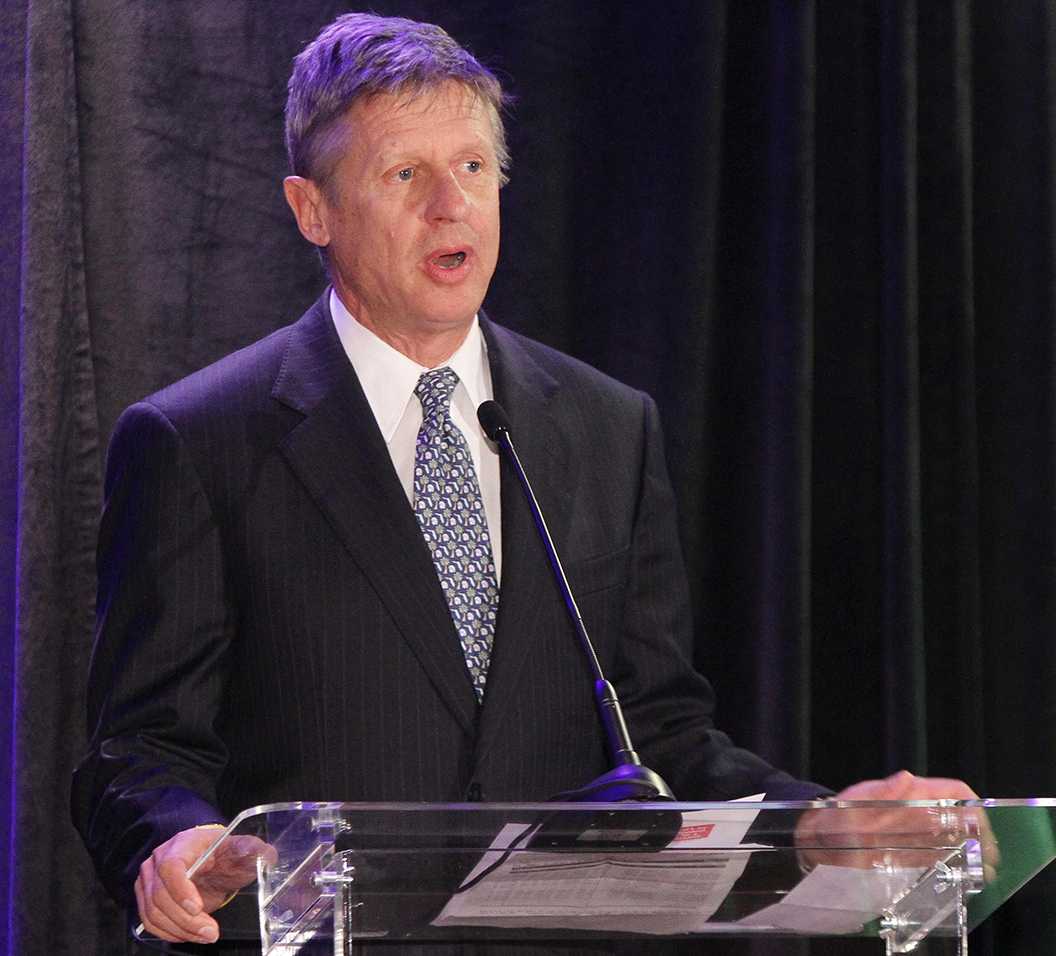Photo Courtesy of Tribune News Service- Gary Johnson speaks during the Libertarian Party presidential candidate debate at the Embassy Suites in Orlando, Florida, Saturday, February 11, 2012. (Stephen M. Dowell/Orlando Sentinel/MCT)
By Matthew Zacher ’18
THE ROUNDUP
Gary Johnson is mounting an independent bid for president as a Libertarian and his bipartisanship is making an Libertarian victory possible.
Johnson, the former Republican governor of New Mexico, is running alongside another former Republican Gov. Bill Weld of Massachusetts.
Currently, the governors are polling around nine percentage points nationally in a four-way poll including Clinton, Trump and Jill Stein, according to the Real Clear Politics Average.
In order to get into the debates, Johnson must poll at 15 points consistently. However, Johnson and Weld have been making several appearances on leading cable news programs, increasing their exposure.
Johnson represents the best parts of both parties.
The Libertarian Party espouses social tolerance and fiscal responsibility.
As such, they are willing to compromise on many partisan issues, which will assist in lessening the gridlock in Washington.
His openness to gay marriage, legalization of marijuana, criminal justice reform and gun control display a new brand of compassionate conservatism.
Johnson and Weld plan on appointing both Republicans and Democrats alike to their cabinet. Their promotions will be based on merit rather than politics.
Johnson and Weld are the only candidates that have a clear vision for balancing the United States budget and paying off our debt, which is near $20 trillion.
Johnson has proposed cutting the Internal Revenue Service, the Department of Education and entitlements as a whole.
In addition, Johnson is aiming to eliminate the income tax, which many Americans have believed to be unconstitutional since it’s implementation in 1913.
Instead, Johnson wants to implement a national consumer tax. Essentially, this would be a nationwide sales tax.
In this tumultuous election year with both Hillary Clinton and Donald Trump sporting historically low favorability ratings, Johnson might have a shot at winning this election.
However, it all depends on him earning a spot in the debates. If he does not reach 15 percent in the polls by Sept. 26, his chances of becoming president will end, and so will the chance to end the log jam in Washington.




















